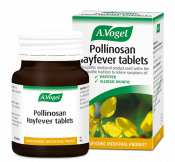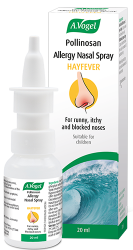An introduction to allergic rhinitis
Allergic rhinitis comes about when the immune system over-reacts to an allergen rather than just letting it pass by.
Hayfever is a type of allergic rhinitis where the allergen appears in the form of pollen. However, mould spores, dust mites and animals can all cause symptoms of allergic rhinitis to appear as well.
Although the most effective treatment for allergic rhinitis is avoidance of the trigger, this is often not possible. However, home, herbal and conventional treatments have been developed and have shown to be helpful.
What causes allergic rhinitis?
Whenever a particle enters the body, the immune system assesses it and decides if it is a threat. If it decides it is harmless no response is triggered but if it decides it is going to endanger the body, the immune system triggers a response to kill it.
It does this by releasing a chemical called histamine which, in turn, can cause inflammation of the mucous membranes lining the nose. This encourages secretion of thick, sticky mucus to trap the foreign particles.
However, the immune system sometimes mistakes harmless foreign bodies for dangerous ones which are known as allergens. Pollen from trees and grass ornamental flowers, house dust mites and flakes of dead skin from animals are all common allergens that give rise to allergic rhinitis.
What are the symptoms?
The symptoms of allergic rhinitis can be very similar to a common cold infection. They occur immediately after coming into contact with the allergen.
Initially you may begin to sneeze and your nose can become runny. Your eyes may begin to water and your throat and eyes can feel very itchy. If you are exposed to the allergen for a long time, your nose may feel stuffy as well as runny, and you may begin to lose your sense of taste and smell. Often these symptoms can cause difficulty sleeping, particularly if pollen is the cause.
Usually the symptoms ease quickly as you move away from the allergen. However, if the allergen is an airborne one, this can be difficult.
Allergic rhinitis does not usually result in complications. However, it is possible for sinusitis or middle ear infections to develop.
How can herbs help?
If you can find out what triggers your allergic rhinitis, this is the first step towards finding an effective treatment. The trigger can be found from simply observing when symptoms occur, or through tests from your doctor. There are certain home, herbal and conventional treatments you can take to ease your symptoms.
If your allergies are being caused by pets or dust mites, it is important to wash your pet or bedsheets regularly. Unfortunately, dusting is also top of the list.
If your allergies are caused by airborne allergens such as pollen, washing your hands and clothes when you come indoors will help you to prevent the allergen spreading through your house.
Herbal remedies can help to lessen the enthusiasm of your immune system to trap and kill harmless particles.
Alfred Vogel devised a herbal remedy for treating the symptoms of allergic rhinitis and hayfever. It is a licensed medicinal product called Pollinosan Hayfever Tablets.
If your symptoms include nasal congestion, you may also find that a nasal spray helps to soothe and cleanse nasal passages, as well as remove allergens. Pollinosan Luffa Nasal Spray may also help to protect against allergens entering through your nose as you breathe.
If your eyes give you bother with allergic rhinitis, eyedrops can be soothing and can ease redness.Euphrasia is a herb which has a long traditional use in treating eye conditions. It can be found in A.Vogel Eyedrops, which are suitable for contact lens wearers.
What about conventional medication?
If you do not find home and herbal remedies to be effective, or you suspect that complications of allergic rhinitis have developed, you may need to discuss treatment options with your doctor.
He is likely to suggest anti-histamines, which reduce the release of the chemical histamine which is responsible for causing your symptoms. These are available with or without prescription.
If symptoms are severe, a steroid nasal spray or tablets may be recommended.





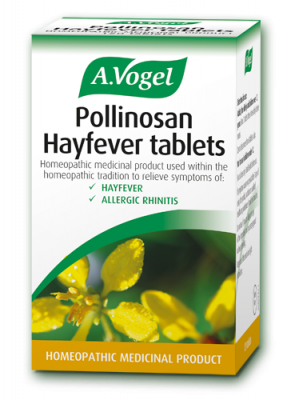
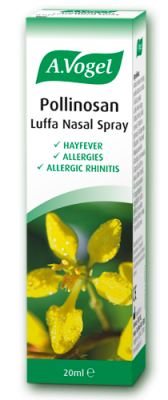
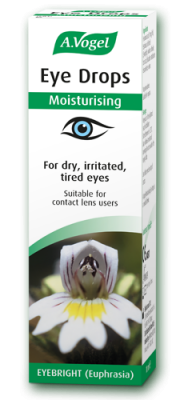
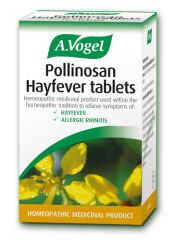 Looking for a solution to curb those hayfever symptoms such as itchy eyes, constant sneezing and congestion, then look no further than A.Vogel’s Pollinosan Hayfever tablets.
Looking for a solution to curb those hayfever symptoms such as itchy eyes, constant sneezing and congestion, then look no further than A.Vogel’s Pollinosan Hayfever tablets.
